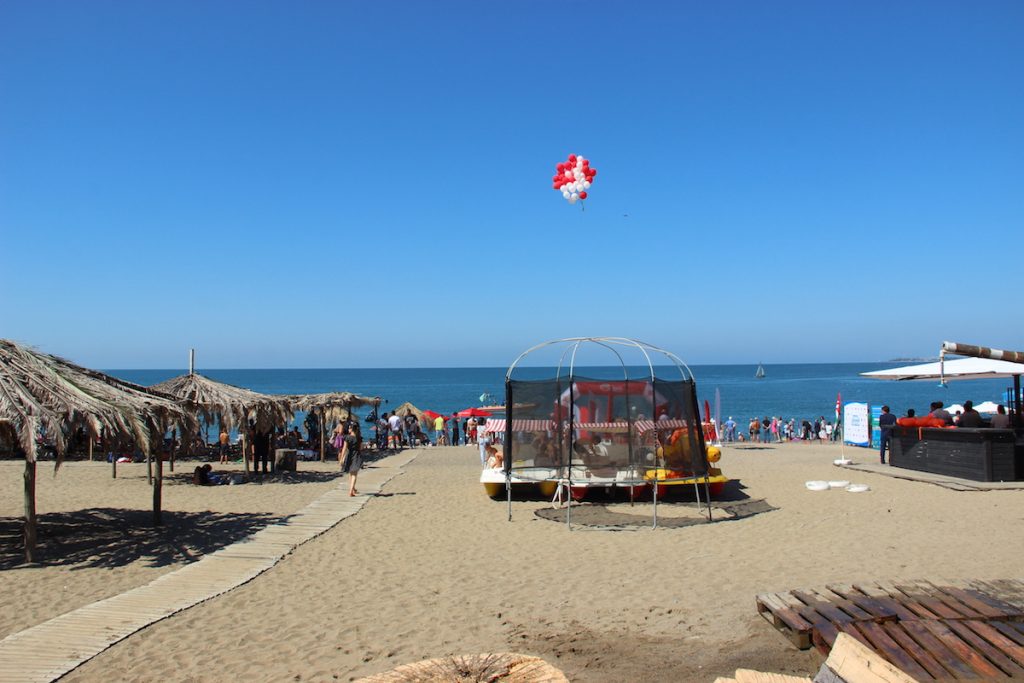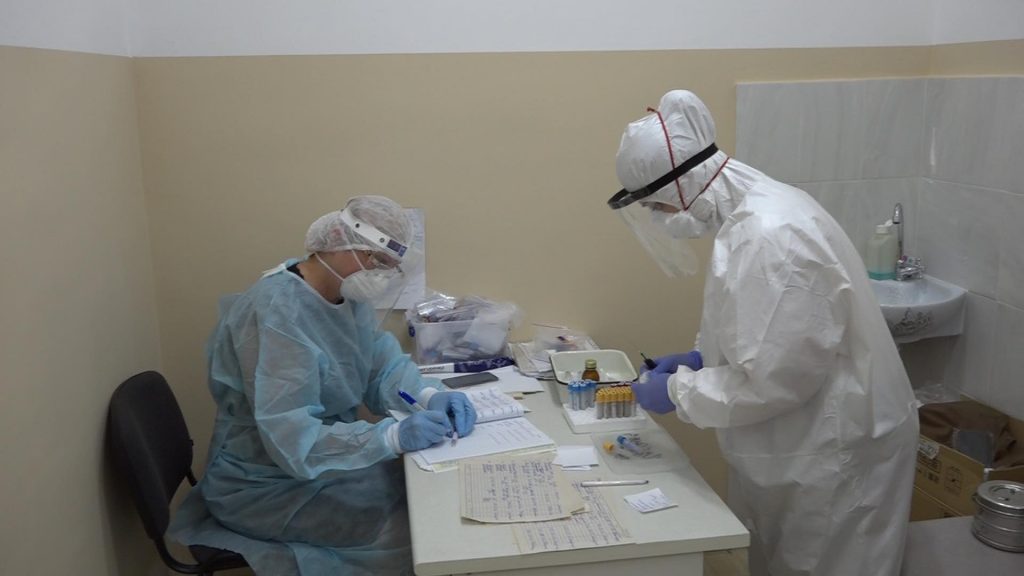Why don't doctors want to treat coronavirus patients in Abkhazia?
There are not enough doctors on duty in the hospitals in Abkhazia where coronavirus is being treated.
With the sharp rise in cases, the demands on doctors have also increased. Working in the covid centers is solely on a voluntary basis.
The government says that many have simply refused. There are many reasons for their refusal. Some say that their health will not allow it, while others claim they have too much work.
Some are scared off by the difficult work environment and the danger of infection. The doctors are not well-protected, say social activists.
The “second wave” of the epidemic in Abkhazia started on 22 July. From March to July, during the “first wave”, 39 people were infected with coronavirus. In the last two months, however, that number has reached 878. 240 of those infected have recovered, while seven have died.
The infectious disease department of a hospital in Gudauta has become the sole location where coronavirus is treated. On 19 September, 81 people were being treated in the covid center, six of whom were in critical condition, and 13 serious.
• Russian tourists on their vacation in Abkhazia. Video
• Op-Ed: Difficult times ahead for economy of Abkhazia
At the beginning of the second wave the ministry of health called on the medical professionals of Abkhazia to commit to working in the covid center, but it has still not been possible to form a permanent team. Instead, doctors from various clinics in Abkhazia work there in shifts.
An average shift in Gudauta lasts for seven days, during which time doctors and nurses can not leave the hospital, and afterwards they must go into self-isolation. At first, the isolation period lasted for 14 days, but it was later reduced to only a week, due to the lack of doctors.
The teams are made up of volunteers, composed of doctors who are willing and able to go.

Doctors at the covid center “in battle”
Astamur Gunia is the director of urology at Sukhum State Hospital. He served at the covid center for the first time two weeks ago, one week working, one week in self-isolation.
He spoke about how the work in Gudauta Hospital was organised. On his shift, there were three doctors and two nurses in the ward and another two doctors and three nurses in the intensive care unit.
“At that time there were 24 patients in the ward and 14 in the intensive care unit. We started each day by doing our rounds. The disinfection team put my protective gear on me, and they have to know how to put it on exactly right. We did the rounds of all 24 patients, checking their tempatures and blood oxygenation levels. It was important to spend time with them, raise their spirits, because they were really depressed”.
“And if there were a lot of them, then it took quite a while, at least three hours in that outfit. It’s not easy, for sure, it’s so hot, it’s hard to breathe through the respirator, everything is hermetically sealed, the whole get-up, and then your glasses steam up from the inside and you can’t see a thing and you have to navigate by touch”.
According to him, it was even tougher for the nurses. They would spend up to five hours without taking off the protective gear, constantly taking care of patients. “A couple of times the nurses passed out on duty. So we resuscitated them and they got right back to work”. It was also hard for those working in the intensive care unit, since they had no one to replace them. One doctor, he says, worked in the covid center 15 days in a row.
“And then you finish your rounds, through the disinfection area, they clean you up, take off the gear, you can’t touch anything, just go straight to the shower, and then in the evening you do it all again. If they bring a new patient you might even have to put the gear on and take it off three times in one day. In the evening you do your paperwork, sleep like three hours, and then get up for the morning rounds. I never even used the phone there, there just wasn’t any time for it”, says Astamur.
Astamur says that one of the intensive care doctors refused to work when he learned that the doctors would have to carry around heavy oxygen tanks, since the central oxygen system wasn’t working in the hospital at that time.
“None of us complained, though. We all knew that it was like we were in battle. There was nothing we could do but work”, says Astamur.
In August doctors began to come from Russia to help the Abkhazian doctors. The Russian teams followed the same rules as the local ones.

Why doctors are refusing to go
People have discussing why doctors don’t want to go to the covid hospital for some time now. However, the first time the topic was publically brought up was at a meeting of the Civic Chamber (a consulting body for the president of Abkhazia) on 16 September by Deputy Minister of Health Tengiz Vardania. He said doctors were refusing to go work in Gudauta, blaming it first on their age, and later on their family situations.
“If we had not four, but eight teams working in the covid center, then the teams could rest longer and spend less time in the center”, said Vardania, explaining the importance of attracting more doctors to work with coronavirus patients. However, he says, his efforts to convince doctors were ineffective.
We couldn’t find a doctor who would admit that they didn’t want to go work in Gudauta and tell us why not. Some of them were worried about speaking openly, afraid of being judged by their colleagues. Others probably didn’t want to openly criticise the government.
At the same meeting of the Civic Chamber, the veteran doctor Gunda Jenia spoke up for Abkazian doctors. In her words, doctors feel unprotected and upset at the ministry of health and the inspection centers, who say that the situation is under control, even though it really is not.
She reminded them of a situation on 7 August, when a cardiology patient at Sukhum State Hospital, having taken his coronavirus test too late, infected doctors and staff at the hospital, including the head doctor.
“When you say that it is safe in Gudauta, we know that too, they are well-equipped, but what conditions are the doctors working under in the Republican Hospital, to name one? What is the risk of infection there?” asked Gunda Jenia to the ministry’s representative.
And Liana Kvarchelia, a social activist, brought up the example of the cardiologist who was infected with coronavirus and had to find a self-isolation room on her own, since no one would help her.
“Someone has to do this job”
Astamur Gunia says that he has heard of doctors refusing to go work, but he doesn’t know any of them personally. To answer the question of why they refused to go, Astamur says that some of them were advised not to on account of their age, while others had no one to replace them at their original place of work, while others had family issues, such as having children and no one to leave them with. Or they had elderly people living with them who needed to be taken care of.
“Other reasons, though, like being afraid of infection or hard work, I’ve never heard that. Everything in Gudauta, protective gear, disinfection, routing, it’s all on the up-and-up, not a single person on the medical staff has been infected even once. Sure, the work is rough, but, hey, someone’s got to do it”, says Astamur.


















